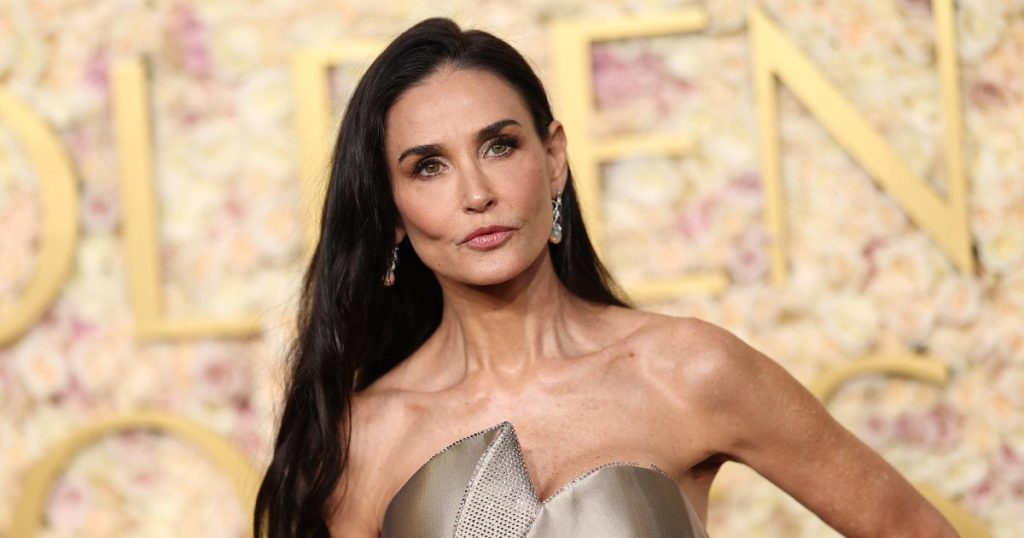Summarize this content to 2000 words in 6 paragraphs
Demi Moore isn’t planning to strip down in the movies in the future.
After Moore, 62, filmed a nude scene in The Substance, a source opened up to Daily Mail sharing it might be her last. “Many of the scripts coming in require her to bare her body again but she’s not so sure if she wants to do it again,” the source said. “Demi believes there comes a time when you need to just say no.”
The insider added that if an “amazing script” with a nude scene falls into her lap, the actress will “negotiate” on what she’s willing to show. “The fact is she was very brave to do it in her sixties, but it was for a project she 100 percent believed in. At the same time, she felt very vulnerable. It’s doubtful she’ll do it again, despite the fact she’s really proud of her body.”
In The Substance, Moore, who was nominated for Best Actress in Leading Role at the 2025 Oscars, played Elisabeth Sparkle, who, according to the movie’s official plot, “faces a devastating blow on her 50th birthday as her boss fires her. Amid her distress, a laboratory offers her a substance which promises to transform her into an enhanced version of herself.” Before Elizabeth took the substance, she examined her naked body.
Moore previously opened up to Variety about the full-frontal scene, which she called a “vulnerable experience” at the Cannes Film Festival in May 2024.
“Going into it, it was really spelled out — the level of vulnerability and rawness that was really required to tell the story,” the actress said. “And it was a very vulnerable experience and just required a lot of sensitivity and a lot of conversation about what we were trying to accomplish.”
She continued, noting that Margaret Qualley, who played a younger version of Elizabeth, helped make her feel comfortable on set. “I had someone who was a great partner who I felt very safe with. We obviously were quite close — naked — and we also got a lot of levity in those moments at how absurd those certain situations were,” Moore said. “But ultimately. it’s just about really directing your communication and mutual trust.”


